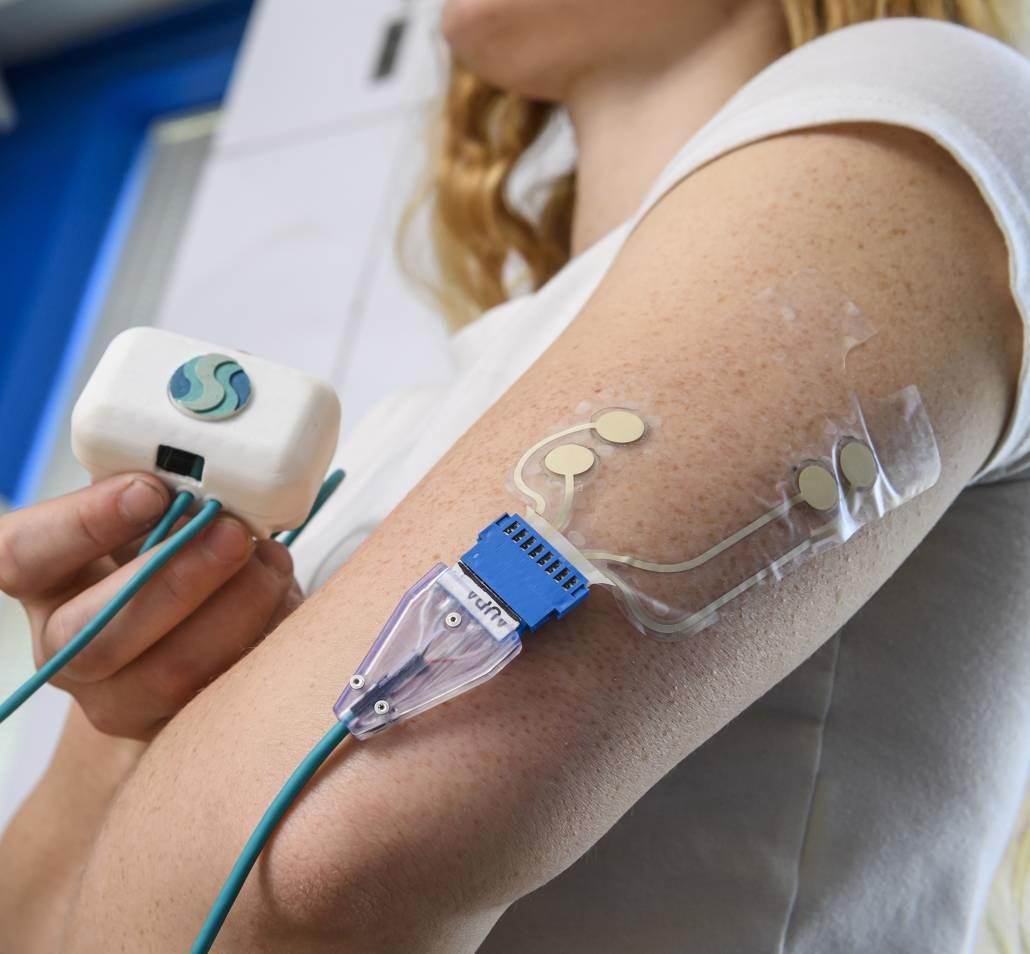
Image Credit: Will Kirk / Johns Hopkins University.
Lymphedema is a condition in which lymphatic fluids accumulate slowly in the limbs, causing pain and swelling. It usually occurs as a consequence of cancer treatment. It is controllable if detected early, but once the patient suspects something is amiss, it is too late for low-impact treatment.
The sensor that is low-cost and shares similarities with a non-invasive patch would be the first device to enable patients to monitor their fluid levels at home in approximately the same amount of time as brushing their teeth.
Early detection is the key. We want to prevent the disease from getting to the point where a patient needs a long, complicated surgery.
Hunter Hutchinson, Co-Leader and Graduate Student, JHU Center for Bioengineering Innovation and Design
Last year, a group of six students from the university’s Center for Bioengineering Innovation and Design began creating the LymphaSense sensor, which is based on technology that is now used to detect IV infiltration.
The students on this team spent hundreds of hours in clinical rotations and discussions with doctors, nurses, and patient advocates, which helped them develop a deep understanding of the clinical need and the constraints within which a solution like the sensor must operate. The students also learned what it takes to develop a solution that's successful commercially, so that, most importantly, it has a chance to get developed and actually help patients.
Youseph Yazdi, Assistant Professor, Biomedical Engineering, JHU Center for Bioengineering Innovation and Design
People at risk for lymphedema are only examined in clinics or hospitals nowadays. It is not unusual for patients to be urged to keep track of their sensitive areas using a tape measure, but spotting the disease’s early stages will be difficult, if not impossible.
However, with this sensor, breast cancer patients and anyone at risk of lymphedema can use the patch on their skin, and a set of biosensors will detect any evidence of fluid buildup. The data is sent through Bluetooth to the patient’s smartphone and to the doctors, who can then scrutinize the readings.
We considered a ring, a bracelet, and a cuff, but lymphedema can impact any part of the body, so a patch was the most feasible option.
Jennifer Schultz, Co-Leader and Graduate Student, JHU Center for Bioengineering Innovation and Design
The team gained crucial insight into the needs and wants of patients regarding testing equipment after interviewing more than 60 patients at Johns Hopkins Hospital. Further refinement was made to it by conducting comprehensive tests on synthetic skin.
The students will conduct a clinical trial this summer to test the gadget on patients. Following that, they would want to apply the tool to the Food and Drug Administration, to have it accessible for medical usage by 2025.
Hutchinson adds, “The patients we’ve talked to have told us repeatedly the patch will empower them to have control over a condition they feel is often out of their control.”
The students came fourth in the 2022 Rice Business Plan Competition earlier this year and won the TMC Innovation Healthcare Investment Prize of $250,000. They also took home about $15,000 for grabbing top spots in a few other events.